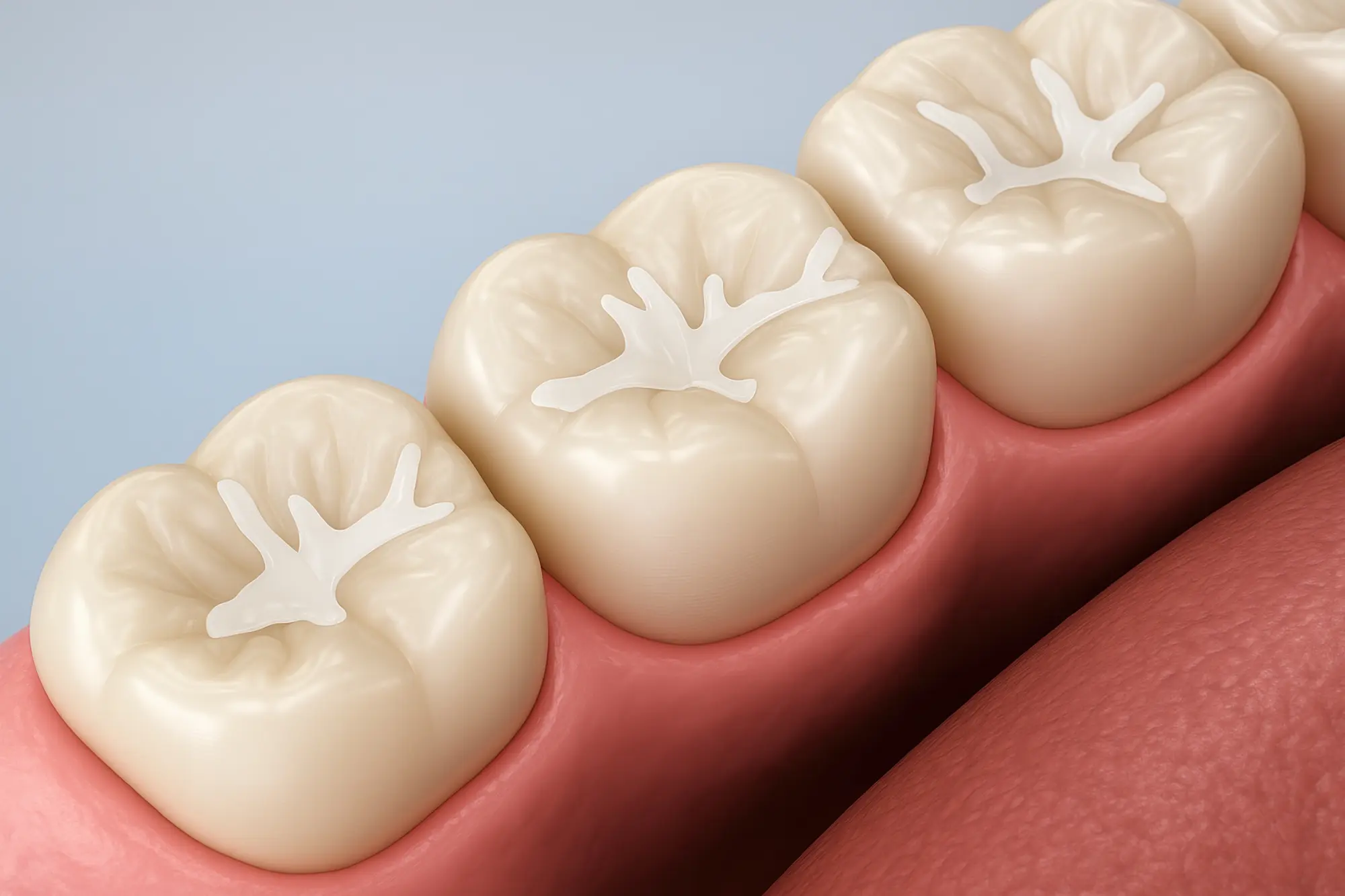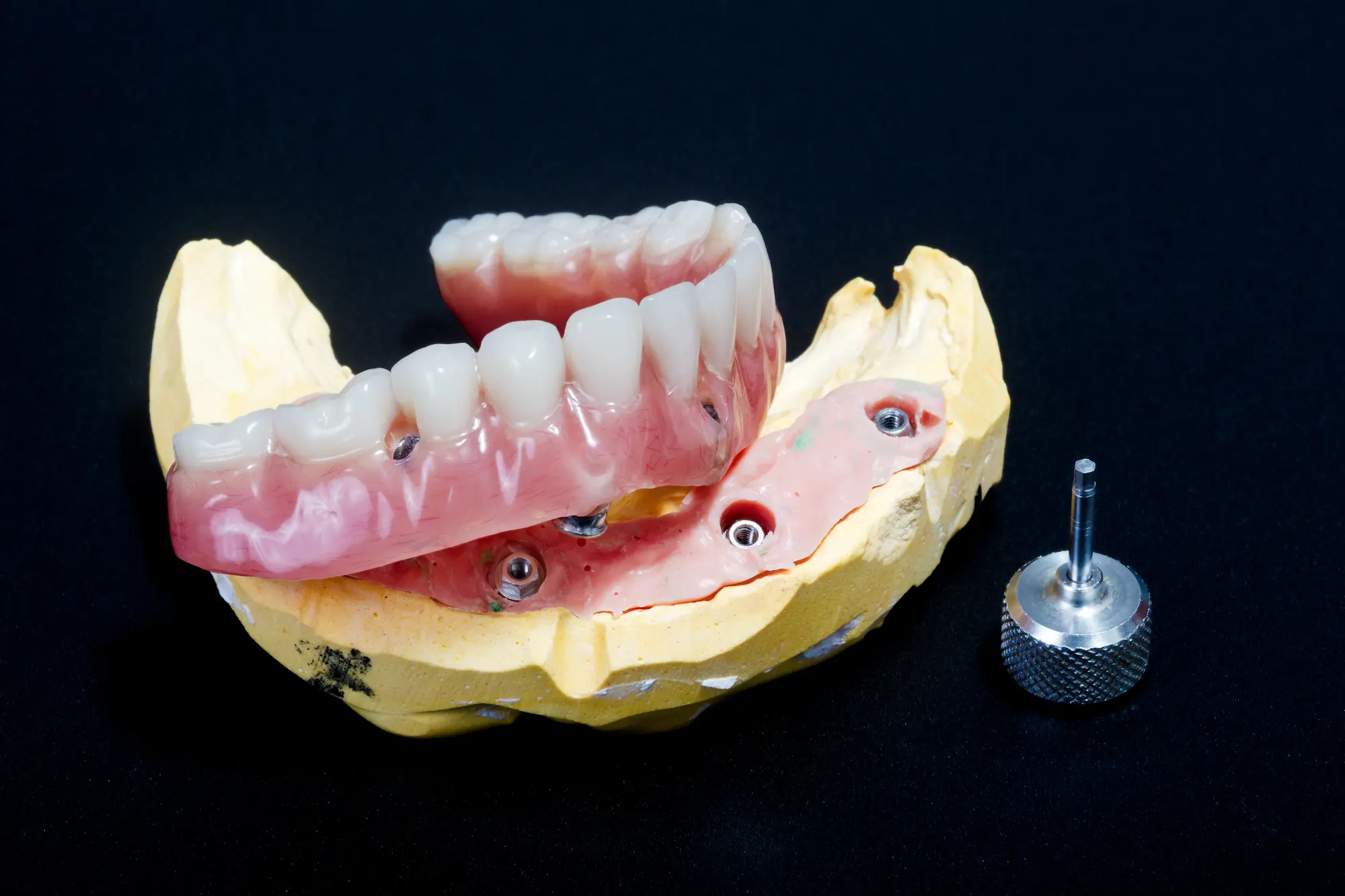In this blog from Confident Smiles & Implants, we’re exploring how full and partial dentures stack up to dental implants. From aesthetics and functionality to bone loss, cost, and time, we’re giving you all the specs on the leading tooth restoration options in dentistry.
Aesthetics
Both dentures and dental implants look very natural, as the artificial teeth are usually made from porcelain materials that look just like real teeth. However, the method by which this is achieved is very different. Dental implants involve inserting a titanium screw into the jawbone. An abutment and dental crown are then attached.
Dentures utilize a pink acrylic base that fits over the gums and artificial teeth made of porcelain. Full dentures sit on the gums and are held in place by a seal that forms with the saliva. However, partial dentures are held in place by clipping onto metal clasps that are attached to the natural teeth. Partial dentures are more noticeable for this reason but are likely to show only when you talk.
Functionality
Dental implants fuse with the jawbone, making the tooth restoration very secure. Implants act just like a natural tooth, requiring no extra cleaning procedures and enabling you to eat a restriction-free diet. The security of the implant ensures that the implants will not shift around when eating or speaking.
In comparison, dentures tend to pose more difficulties for patient comfort and mastication. Dentures are more prone to shifting around when speaking or eating and certain foods may need to be avoided. It’s necessary to soak and brush your dentures often.
Pronouncing “s” and “f” sounds can be difficult but should become easier with practice. Other issues with dentures include excess saliva production, gum irritation, and louder speaking. Some of these issues may be resolved as you adjust to your dentures, but others, such as restrictions in the diet and shifting dentures may always be present.
Mitigating Bone Loss
When you lose a tooth, it must be replaced to prevent bone loss and shifting teeth. While dentures restore the function and appearance of the teeth, they don’t mitigate bone loss. Bone loss occurs as a result of a lack of jaw bone stimulation.
A natural tooth’s root stimulates the jaw bone through chewing, causing the cells in the jaw to regenerate themselves. However, when this stimulation is taken away, the cell reproduction rate slows and then comes to a complete halt. At this point, bone destruction occurs within 6 weeks.
Dental implants fuse with the jaw bone and restore not only the appearance and function of the tooth but also the tooth’s root. This means that when you chew with a dental implant, you stimulate the jaw bone just like a regular tooth and prevent bone loss.
This is important because bone loss leads to changes in the facial structure that can age you prematurely and issues with your remaining teeth. Dentures have the effect of accelerating bone loss due to the wearing down of the ridges of the bone when you chew.
Cost & Length of Procedure
Dentures are much more affordable upfront and are a more immediate replacement solution. Dentures only take a few weeks to a few months, while dental implants take a minimum of 3-6 months just for osseointegration (the fusion of the implant with the jaw bone) to take place.
Full dentures take a little longer than partial dentures because the remaining teeth need to be extracted and the gums need to heal. This process takes about 8-12 weeks before the actual denture placement.
While dental implants are a more expensive and lengthy procedure, they are more durable and last for 25 years to a lifetime. In comparison, dentures need to be replaced about every 7 years or sooner if your facial structure changes.
Implant Dentistry at Confident Smiles & Implants
At Confident Smiles & Implants, we offer single arch implants to replace a single missing tooth, full-arch implants for one or both arches of teeth, and implant-supported dentures (overdentures) for patients who want removable dentures without causing bone loss.
Overdentures hold dentures into place with a series of dental implants. If you’re interested in dental implants, contact us today to find out which type is right for you. Schedule a consultation with Dr. Luis or Dr. Tori Mariusso today.





